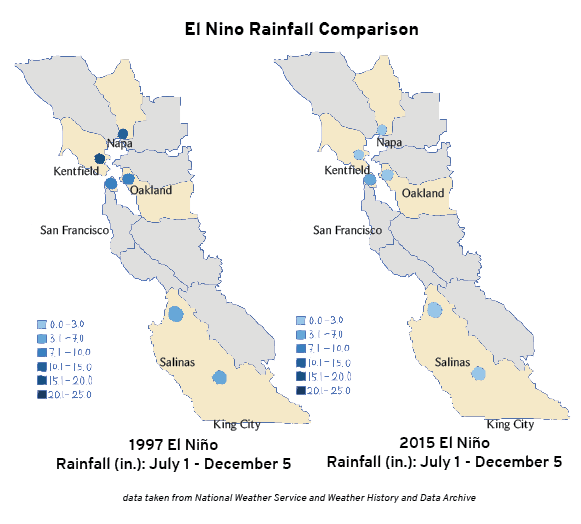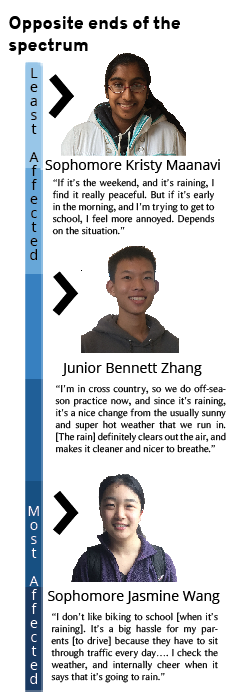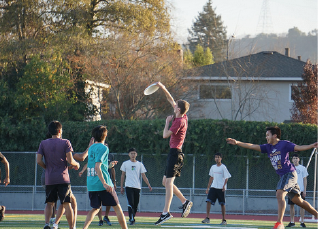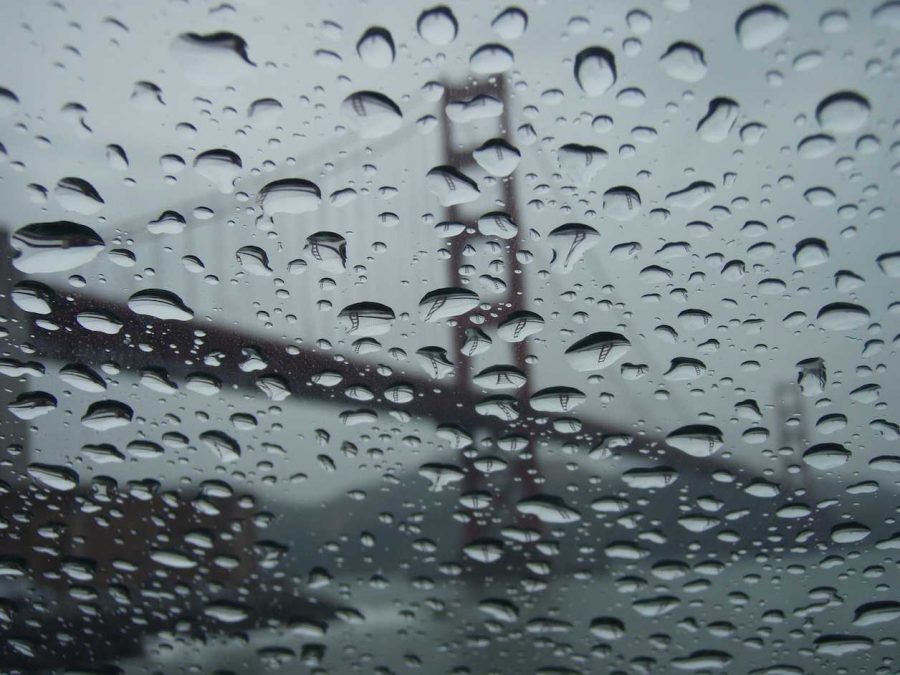Co-authored by Ada Chen.
G
iant puddles in the middle of the Academic Quad, the sound of droplets pounding against the roof, wet and muddy socks tossed into the laundry — these are all signs of El Niño, a series of climatic changes that are hitting the Equatorial Pacific because of fluctuating ocean temperatures, a phenomenon that takes place every seven or so years. These changes can be seen on a large scale, but they are also evident on the MVHS campus.
 The basics
The basics
Normally, in the Pacific Ocean, the wind pushing the water brings up cold water from the depths of the ocean, and pushes warmer water toward the west. During El Niño, because the winds get weaker, the cold water is left at the bottom of the ocean, and results in an overall increase in temperature for the ocean. AP Environmental Science teacher Andrew Goldenkranz states that the increase in ocean temperature then brings about warmer and wetter weather.
Although it seems like Cupertino should welcome the extra rain, especially after the long drought, the sudden influx of rain may actually bring undesirable consequences instead. The biggest detriment would be to the dried-out soil.
“We want [soil] to act like a sponge: to hold water well. Just think of a sponge at home, and if you threw a whole bunch of water on a super dried-out sponge, it’s not going to soak in very well,” Goldenkranz said. “It would immediately start to run off, and the ground is going to react in exactly the same way.”
Clubbing through the rain
Rain causes disturbances to different clubs who hold activities outdoors. Some continue to do what they normally would, while others are forced to cancel activities until the rain subsides.
For example, Biken Club usually has rides every Sunday morning on either the Steven Creek trail or up to the mountains. However, when it’s raining, it’s too risky to bike in the rain.

“It’s not safe for people to bike, especially if you’re going downhill, it’s easy to slip,” co-president junior Rishit Gundu said. “Visibility safety is a big issue, because there’s wind and rain in your eyes and face.”
Ultimate frisbee, on the other hand, continues practices and after school games on Friday even if itís raining. However, they need to make certain adjustments.
“Attire is important. When it rains, it’s ideal to have cleats, and if you don’t have cleats, you’re going to be slipping a lot, because it’s going to be wet,” director of public relations sophomore Ryan Loke said. “Rain also makes the disk kind of wet, which makes it harder to throw and catch because it’s slippery.”











